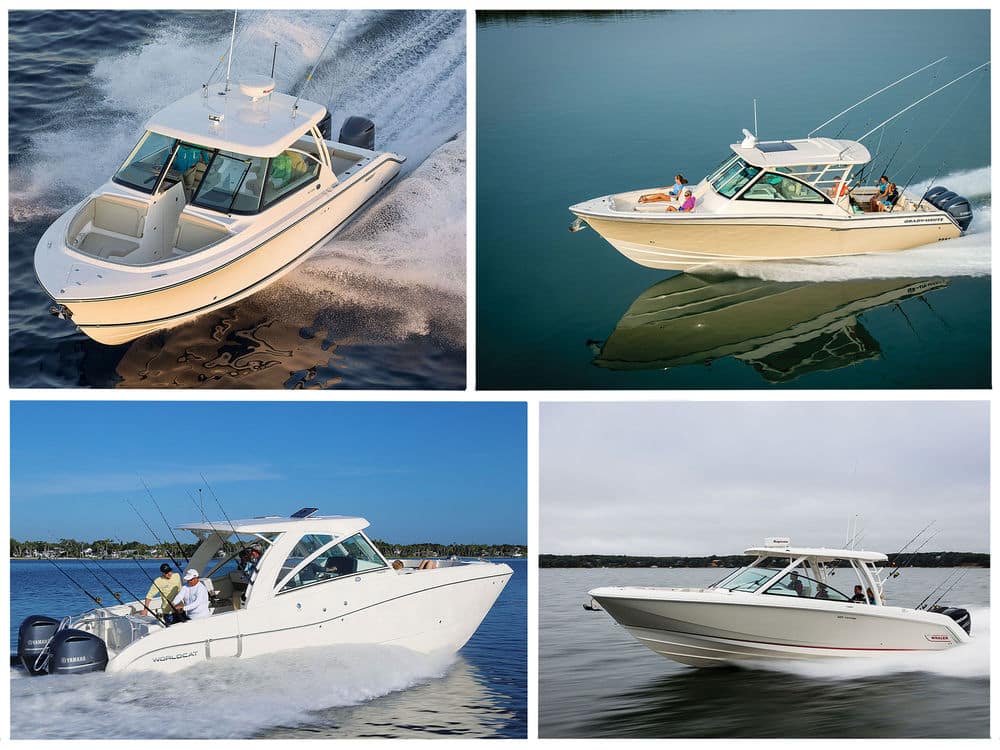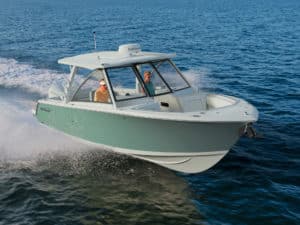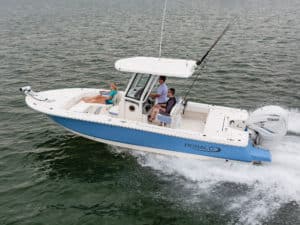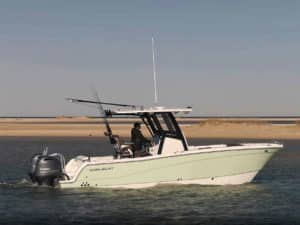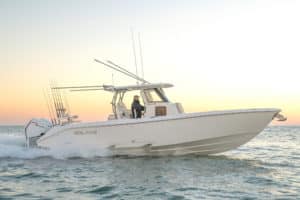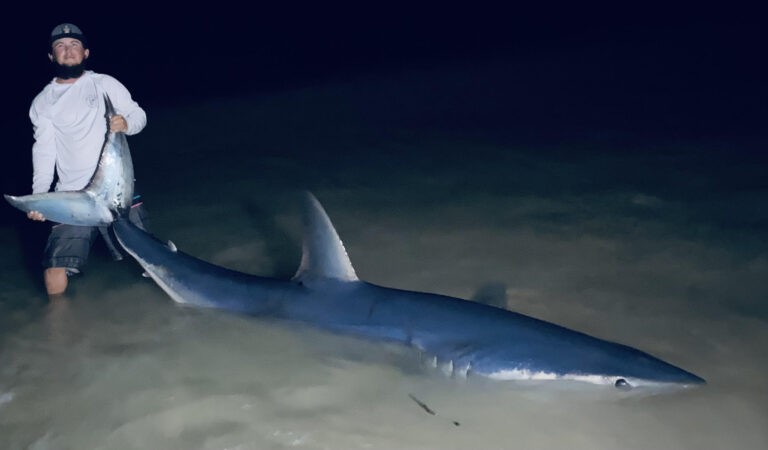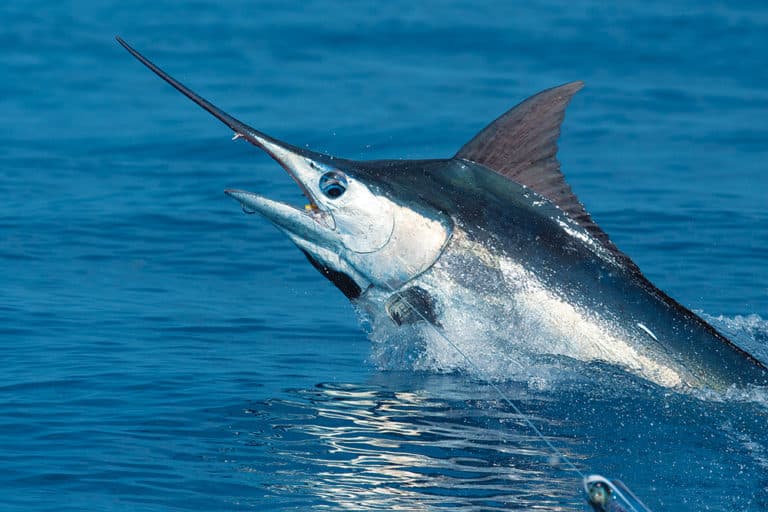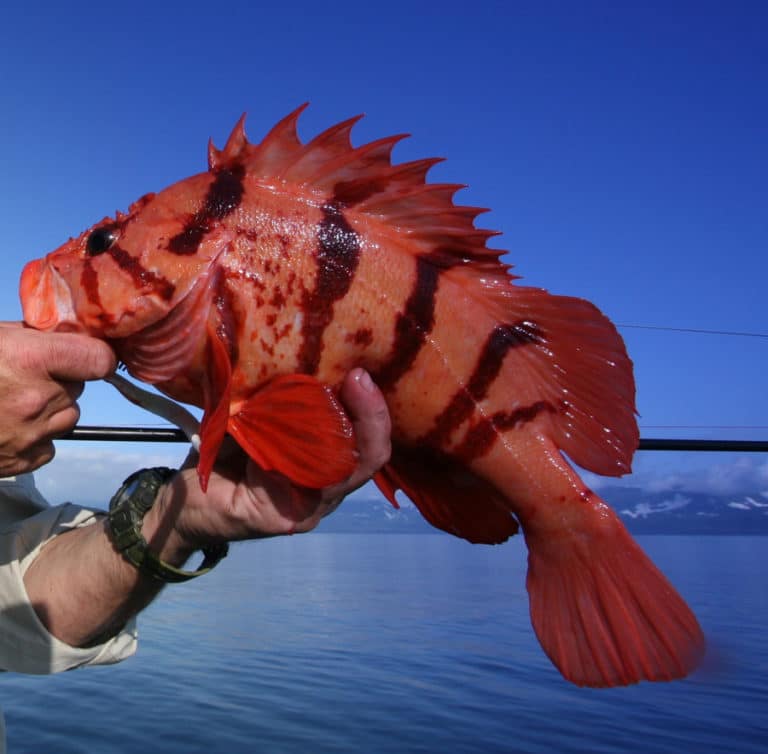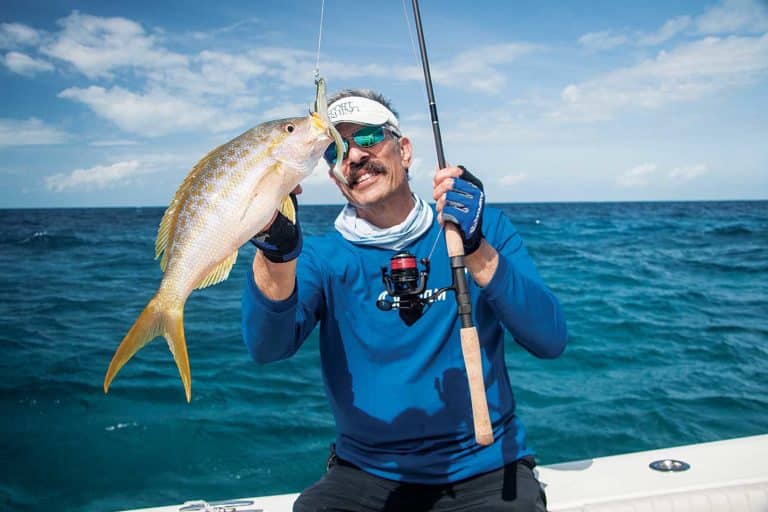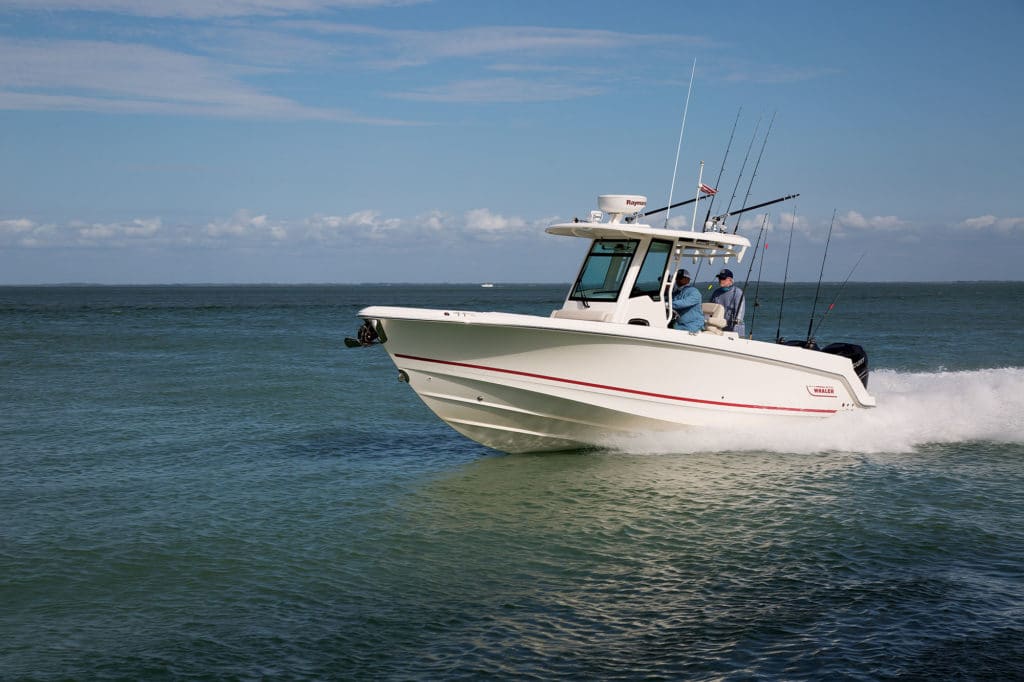
“What’s the game plan?” That was the question I posed to Capt. Chris Wittman as we departed the marina at the South Seas Resort on Florida’s Captiva Island aboard the new Boston Whaler 280 Outrage.
“We’re going to fish a wreck for king mackerel about 6 miles down the coast,” Wittman replied. Joining us for the day were Traci Davis, manager of content development and events for Boston Whaler, and Sport Fishing videographer Christopher Balogh.
As Wittman advanced the Mercury digital throttles and turned left out of Redfish Pass, we were met by tightly spaced 2- to 3-foot waves, all sporting frothy whitecaps with streaks of foam across their faces.
While I initially braced for a rough ride, I soon realized that Whaler’s deep-V running surface was pampering us. With minimal outboard trim and the optional Lenco trim tabs both deployed about 25 percent, the boat sliced gently through the seas as the bow flare tossed aside spray.
Twin Mercury 300 Verado outboards propelled the 280 Outrage to a speed of 30 mph at 3,800 rpm, where the Mercs burned 18 gallons per hour, according to the Mercury VesselView display, resulting in 1.66 mpg.
Enjoying the Deluxe Helm Seating
The pleasant ride gave me the chance to enjoy the optional deluxe helm seating. Twin chairs coddle the helmsman and co-pilot with lumbar and thigh support. Fully padded fold-down armrests offer lateral support, while footrests at the base of the helm let you prop up your feet. Flip-up bolsters offer backside bracing while standing.
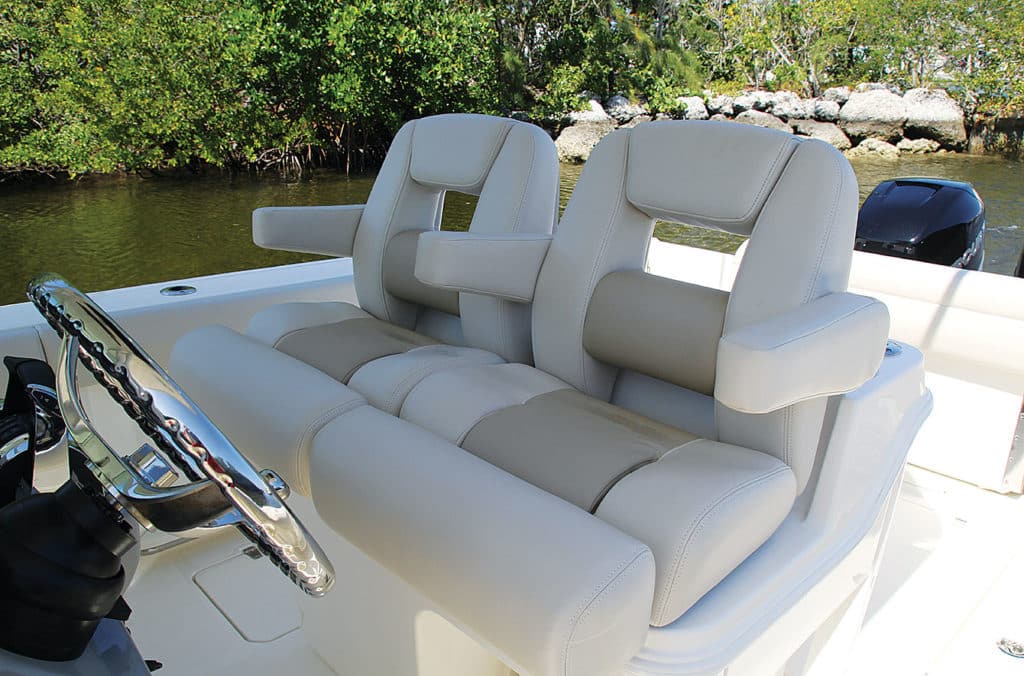
A tempered-glass windshield, integrated seamlessly with the powder-coated aluminum frame for the optional hardtop, quelled wind noise enough to allow for conversations at the helm without shouting. A motorized vent atop the front panel ushers in fresh air on sultry days.
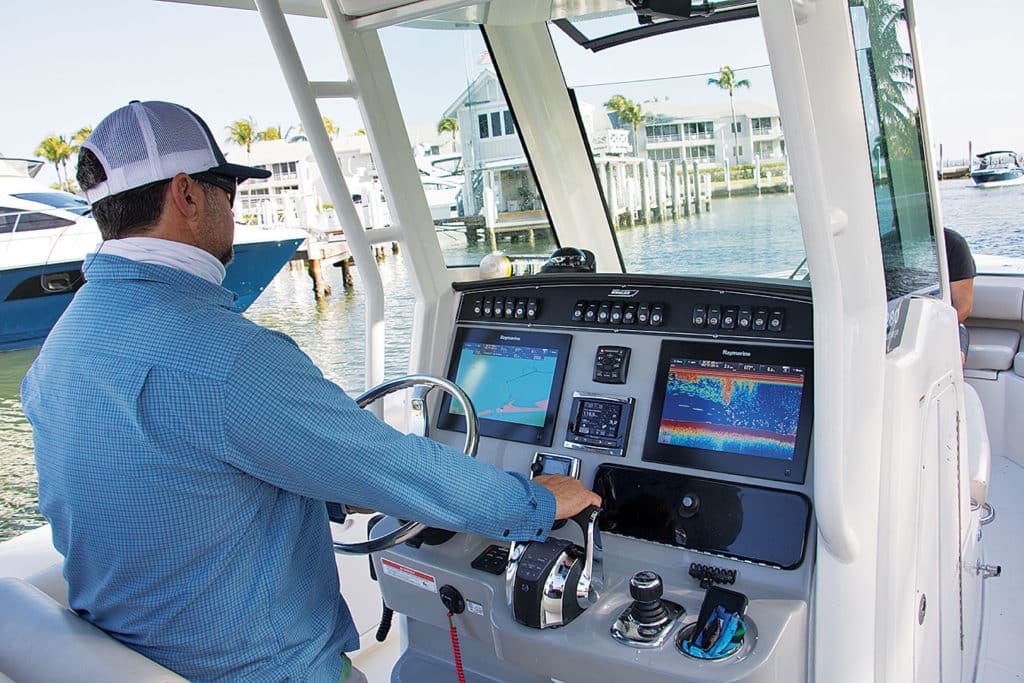
A pair of optional Raymarine e165 multifunction displays guided the way, and within 15 minutes we had arrived at Wittman’s waypoint. A few circles around the 27-foot-deep area with the sonar helped the captain pinpoint the spot. As the boat idled beam-to in the building seas, the 9-foot-4-inch beam and healthy reverse chines created remarkable stability.
The in-stem anchor chute and integrated roller, combined with the optional windlass hidden in the anchor locker, made setting up on the wreck a simple matter. When it came to live bait, we were all set thanks to Wittman and Davis, who had ventured out in the wee hours of the morning to cast-net for threadfin herring before meeting Balogh and me at the marina. They had filled the pressurized 30-gallon baitwell abaft the helm seats. A second livewell in the port quarter adds another 17 gallons of bait capacity, if you need it.
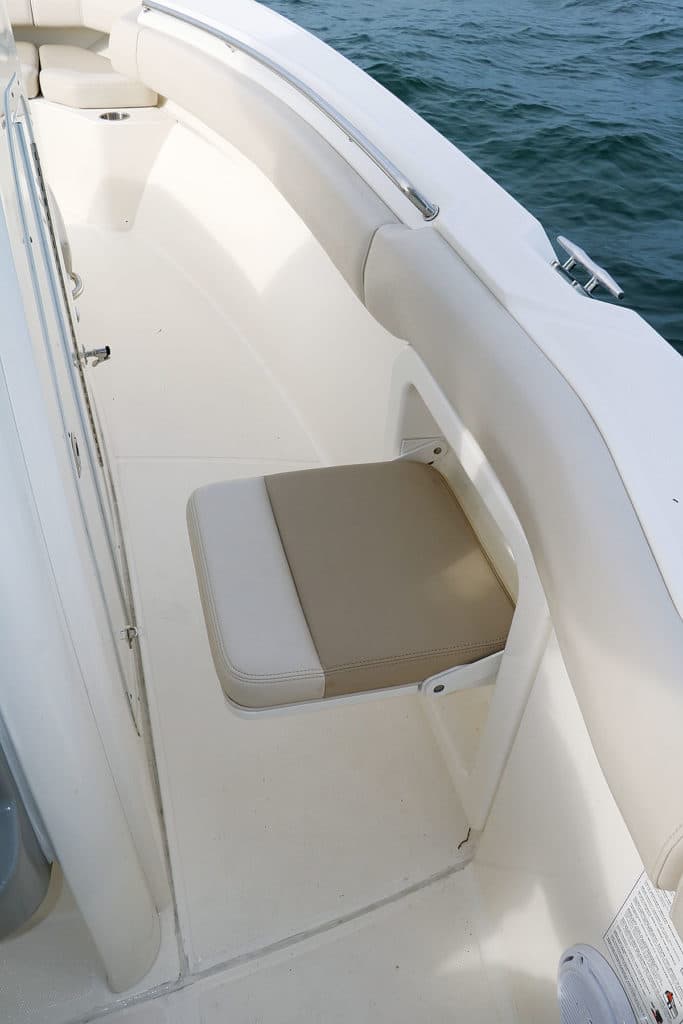
Design of Boat
Wittman used the tackle-prep station next to the livewell — which includes a sink and freshwater faucet — to tie up lines with short wire leaders sporting single 3/0 J hooks and treble “stinger” hooks for kingfish. We set out two flat lines and two with floats to keep the baits higher in the water column. A chum bag tied off on the port pull-up stern cleat spread a scent trail astern.
While waiting for a bite, Davis outlined the design philosophy behind the popular Outrage series. “Designers base each model on three elements: simple, comfortable, fish,” she explained. In the 280, comfort is evident in a lounge for two on the forward console, a uniquely designed seating nook in the bow, an easy-to-use fold-out transom bench and jump seats aside the console, and a portable marine toilet and shower within the center console, Davis pointed out.
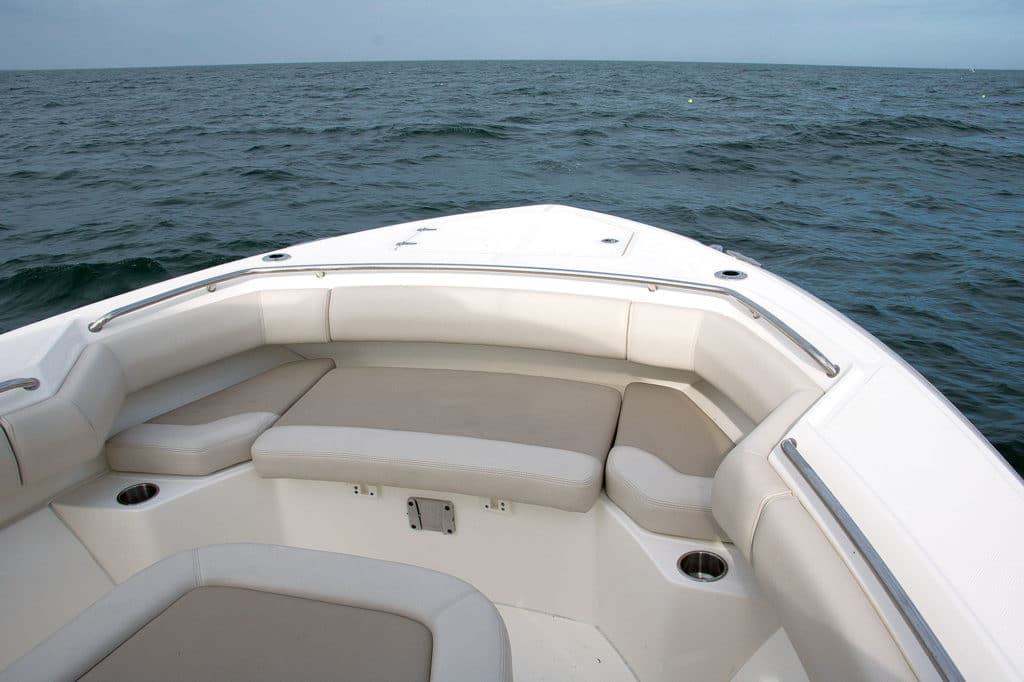
The fish portion of the equation comes through in features like the 20 rod holders that adorned my test boat, the optional Taco Marine Grand Slam outriggers on the hardtop, twin 54-gallon fish lockers (with pump-outs) flanking the cockpit sole, and lockable rod storage within the “garage” — a spacious compartment under the forward-console lounge.
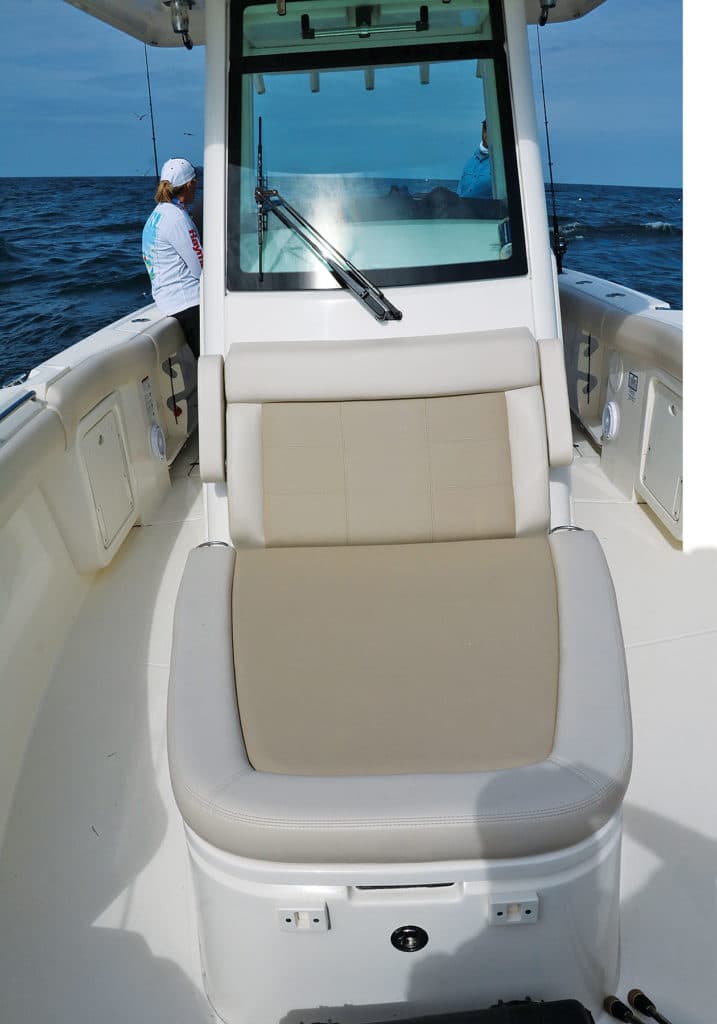
Boat is Unsinkable
Simple is manifested in features such as abundant level deck space, granting ample room to walk around the console and providing unfettered access along the rail. The advantage of these elements became exceedingly clear when the sound of a singing drag suddenly disrupted our discussion. I rushed astern to grab the port flat line as a kingfish unleashed a blistering first run.
The fish then streaked across the stern, and I was able to easily follow it to starboard, the diamond nonskid sole providing sure footing, the padded coaming bolsters (which encircle the interior) cushioning my legs just above the knees. The king reversed course, cutting back across the transom before finally tiring. Rather than gaffing the fish, Wittman was able to lift the king mackerel by the tail for a few photos before releasing it unharmed.
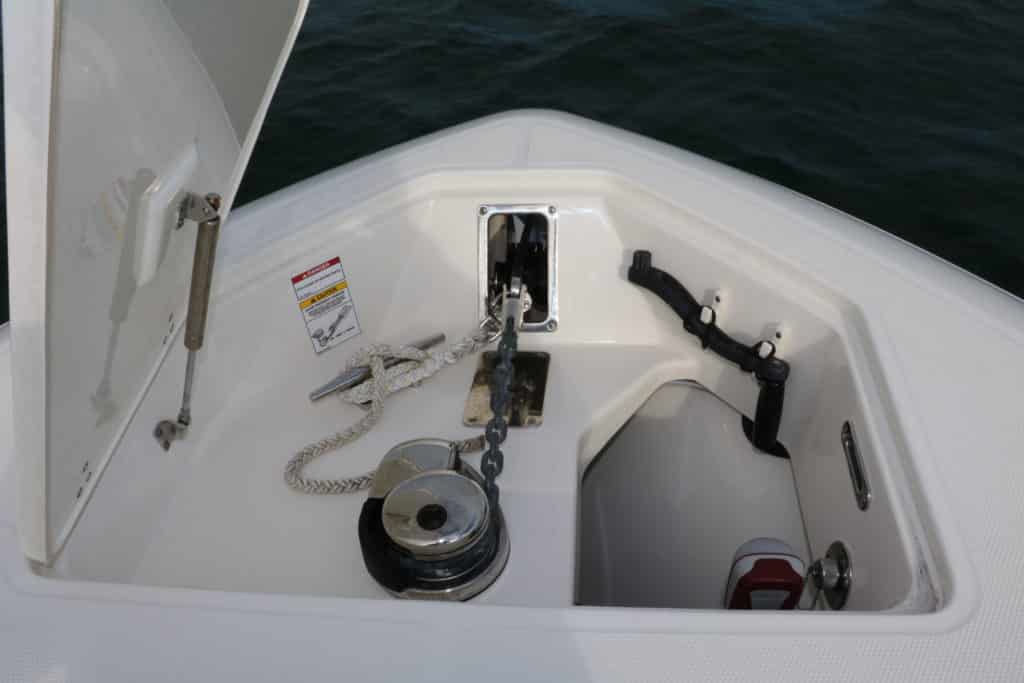
As we waited for another bite, Davis reminded me of the greatest feature of a Boston Whaler: its legendary unsinkability. With Whaler’s unique foam-filled construction, the 280 features a “swamped” capacity of 4,450 pounds. “That means the boat will float upright with a load of 4,450 pounds, plus the weight of the water when filled to the top of the coamings,” she explained.
Moments later, a king attacked the bait on the starboard flat line, and Davis picked up the rod. The fish sulked straight down, initially refusing to budge, but 60 seconds later began to relent, revealing itself near the surface before streaking south, shaking its head, and dislodging the hook.
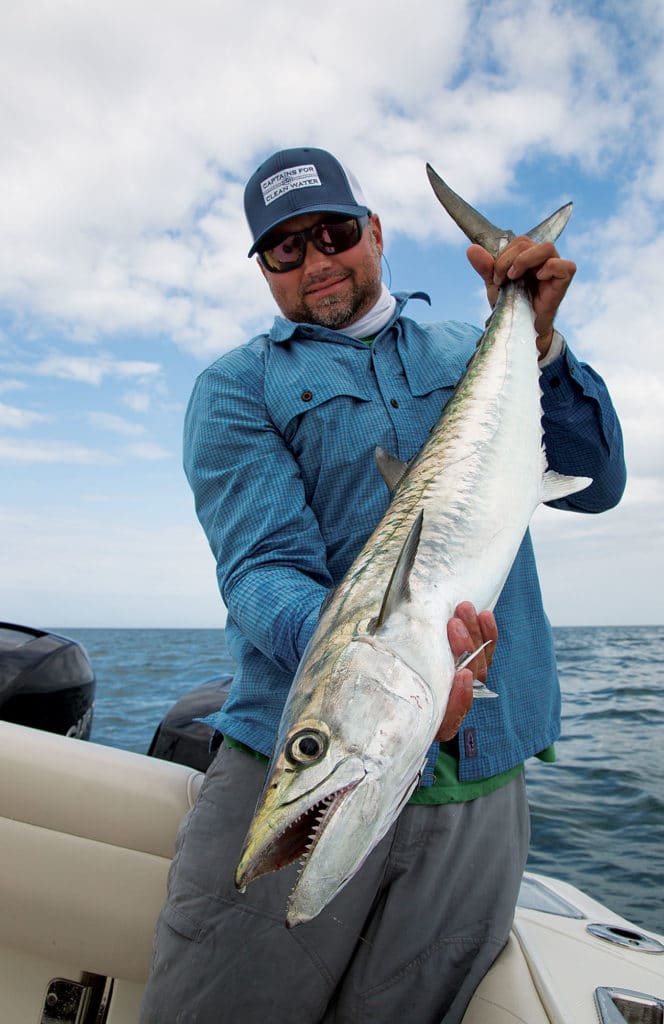
Showing Power and Speed on the Water
At that point, with the waves now running up to 4 feet, we decided to head back to port. I took the wheel for a spell and found that the 280 handled exceedingly well, carving turns with precision and predictability. In the down-sea run, this Outrage did not display even a hint of bow steer or tendency to stuff the nose. To ease the process of docking, my 280 was equipped with Mercury’s Outboard Piloting joystick control.
In protected waters, turning 20-inch-pitch Mercury Revolution 4 stainless-steel four-blade propellers, I found that the 280 accelerates to plane in 7.4 seconds and reaches 30 mph in 9.7 seconds. Top speed was an impressive 57 mph at 6,300 rpm, where the twin 300 Verados burned 60 gph, resulting in 0.95 mpg.
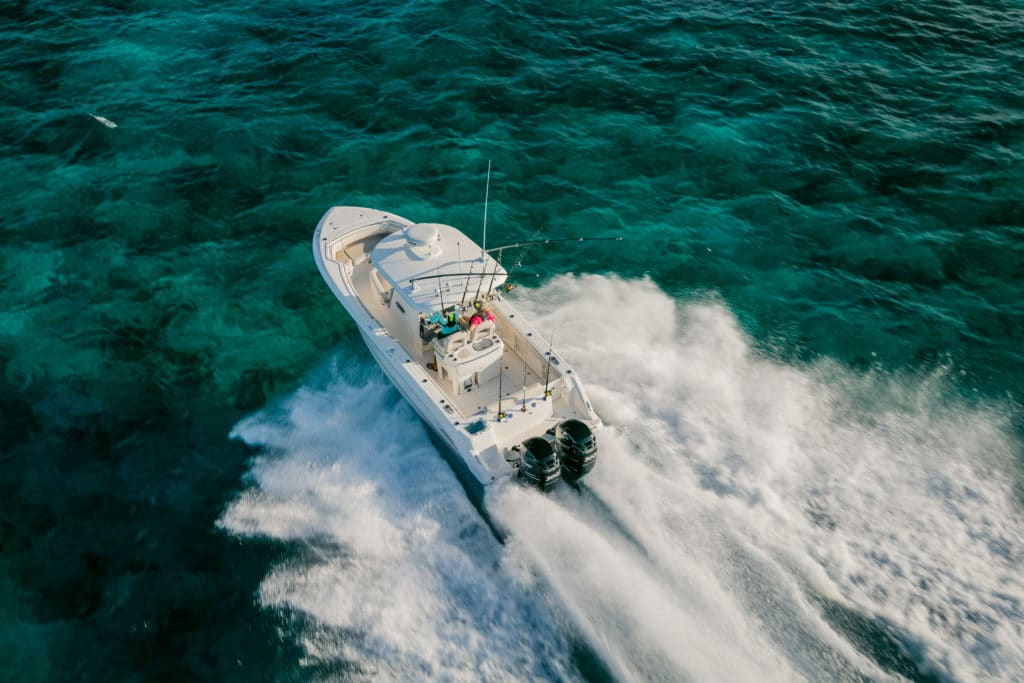
The most efficient cruising speed came at 3,500 and 29.3 mph, where the twin Verados burned 17.4 gph for 1.68 mpg. That equates to a cruising range of more than 300 miles based on the 186-gallon fuel capacity.
If you’re looking for a midsize center console that combines a simple, easy-to-fish layout and a superb ride with comfort, performance and an extra measure of safety, look closely at the new Boston Whaler 280 Outrage.
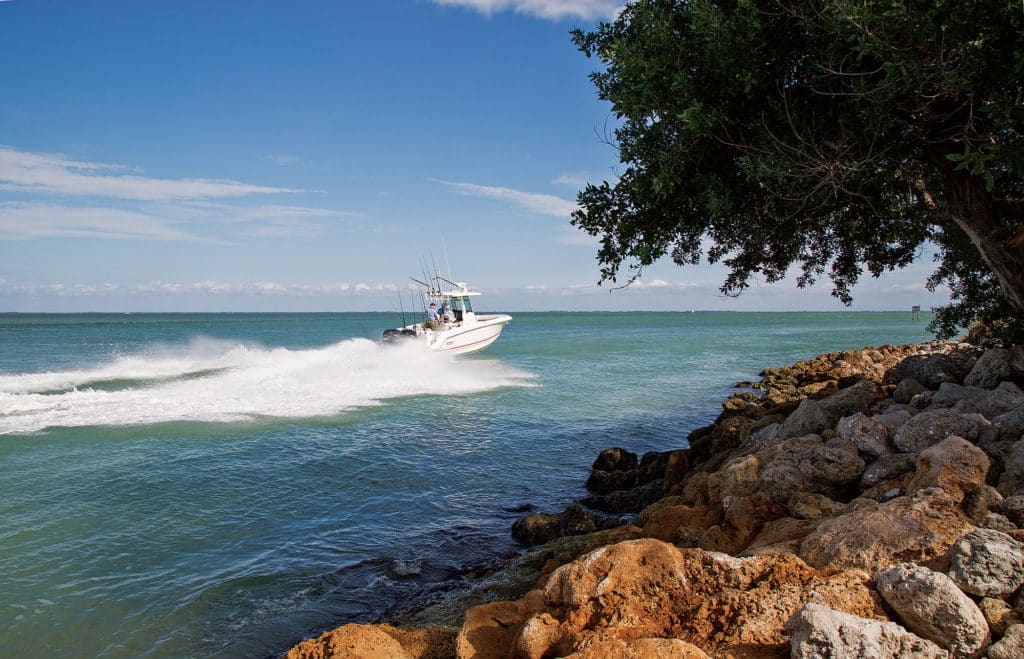
Specifications
Performance
Power: Twin Mercury 300 Verado outboards
Load: 90 gal. fuel, four crew
Top Speed: 57 mph @ 6,300 rpm
Time to 30 mph: 9.7 sec.
Best mpg: 1.68 @ 29.3 mph (3,500 rpm)
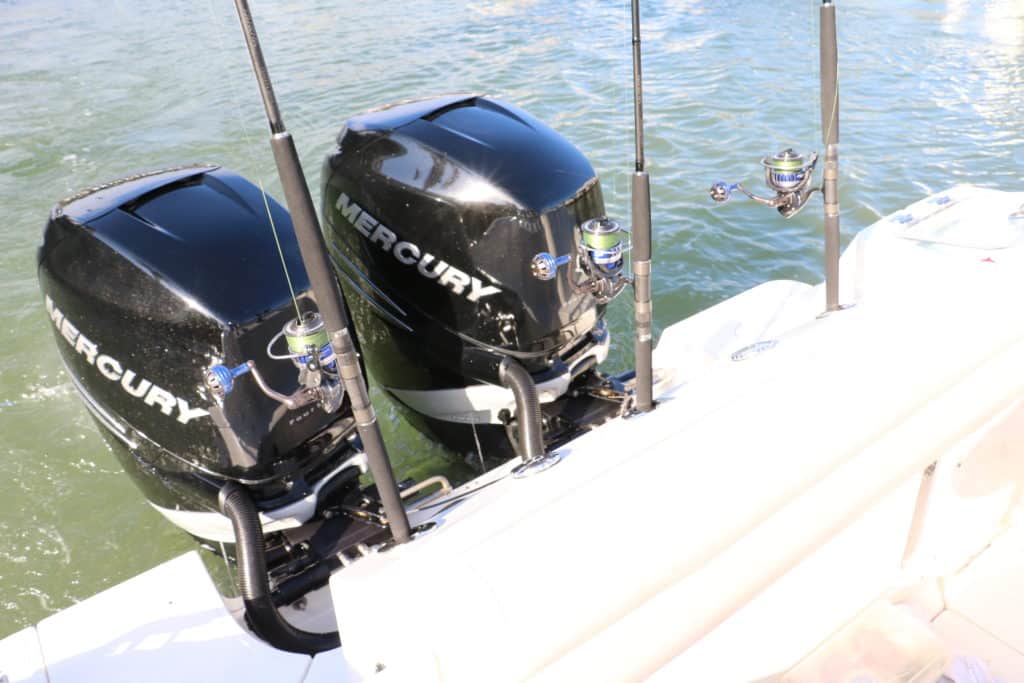
Hull
LOA: 28 ft.
Beam: 9 ft. 4 in.
Deadrise: 23 deg.
Dry weight: 6,200 lb. (w/o engines)
Draft: 1 ft. 10 in.
Fuel: 186 gal.
Max power: 700 hp
MSRP: $204,141 (as tested w/ twin Mercury 300 Verados)
Boston Whaler
Edgewater, Florida
386-428-0057
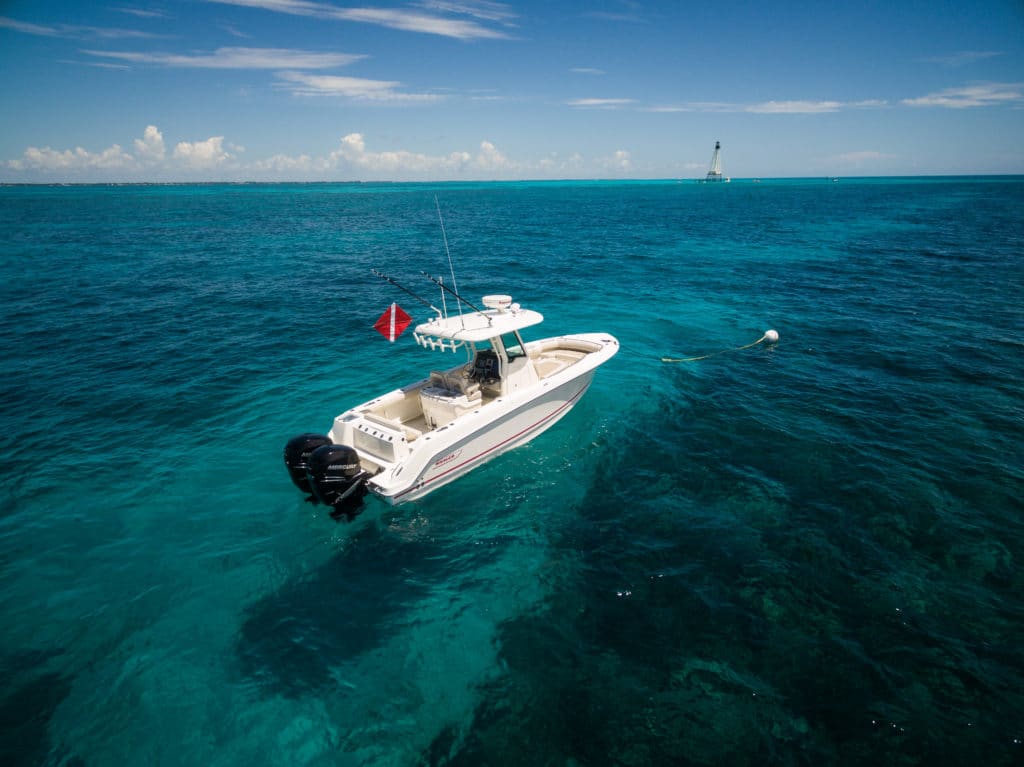
To see more boat content, check out this look at four giant dual-console boats.
